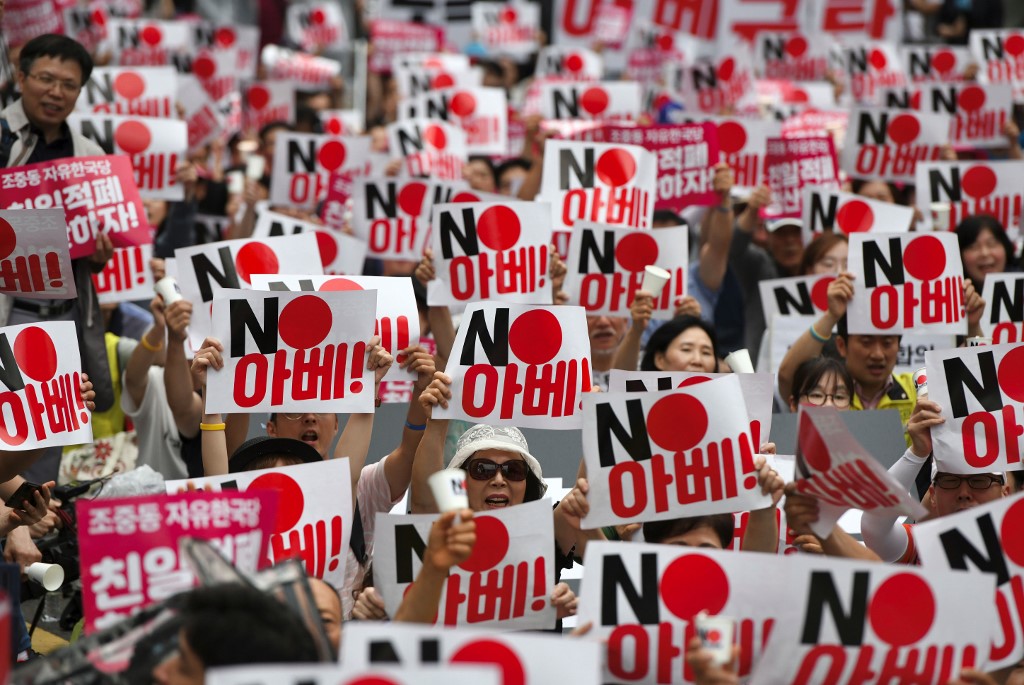SUMMARY
This is AI generated summarization, which may have errors. For context, always refer to the full article.

SEOUL, South Korea – The foreign ministers of South Korea and Japan will meet this week, Seoul said Wednesday, July 31, as a long-running diplomatic row develops into a bitter trade spat between the two US allies.
Japan this month unveiled tough restrictions on exports of chemicals vital to Seoul’s world-leading chip and smartphone industry, in an escalation of a decades-long dispute over Japanese forced labor during World War II.
Tokyo has also threatened to remove South Korea from its “white list” trade status as early as Friday, in a move that could affect hundreds of key items imported to the South.
Seoul’s foreign minister Kang Kyung-wha is due to meet her Japanese counterpart Taro Kono on Thursday in Bangkok on the sidelines of a regional foreign ministers’ meeting, the South’s foreign ministry said.
It did not elaborate on what will be discussed at the talks, which will be their first since Japan’s announcement.
Tokyo’s latest move has enraged South Koreans, where almost seven in 10 people still report negative feelings towards the country’s former colonial ruler.
South Koreans have launched a nationwide boycott of Japanese products ranging from beer and clothes to cosmetics, and the country’s top two air carriers – Korean Air and Asiana – have announced cuts in flights to Japan due to falling demand.
Japan and South Korea are both democracies, market economies and US allies, but their relationship has been strained for decades as a result of Tokyo’s brutal 1910-45 colonial rule over the Korean peninsula.
Ties have worsened since last year following a series of rulings from South Korean courts ordering Japanese firms that used wartime forced labour to compensate victims.
Tokyo argues that compensation claims related to the issue were settled by the treaty that normalised relations in 1965, which included a reparations package of grants and cheap loans. – Rappler.com
Add a comment
How does this make you feel?
There are no comments yet. Add your comment to start the conversation.